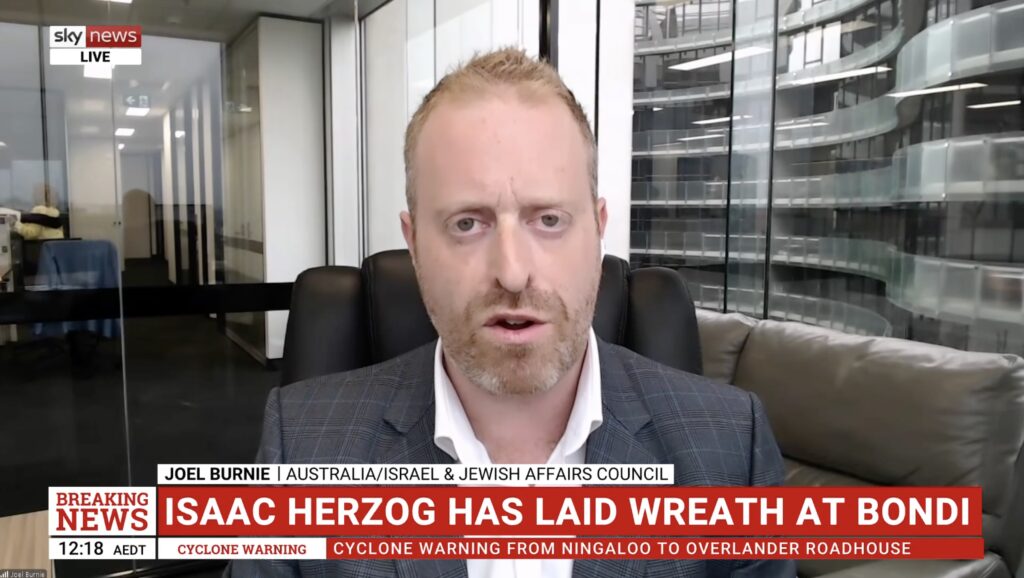UPDATES
Media Week – History Lessens
October 10, 2013 | Allon Lee

An almost full page retrospective looking at the 40th anniversary of the Yom Kippur War was so lacking in basic historical understanding that it boggles the mind how it succeeded in being published in one of Australia’s largest selling newspapers (Daily Telegraph, Oct. 5).
For Marea Donnelly “the bloodshed preceding it and the killings that followed, brutal assaults by Egyptian and Syrian forces on the Jewish holy day in 1973 shared their origins with Israel’s then prime minister Golda Meir.”
How? Donnelly takes an extremely long view of historical causation, pinpointing the origin of the war to both “Meir, [who] like many Israeli founders, reached Palestine after fleeing violent pogroms in her Russian homeland” and “land purchases almost a century earlier by Russian Jewish exiles in the then Ottoman Arab state.” That’s right, in her telling, the cause of the war was the presence of Jews in Israel.
From there, it really didn’t get any better, with a random and less than knowledgeable retelling of the history of the Arab-Israeli conflict.
Other howlers included claiming the League of Nations awarded the British a Mandate over what became Palestine because of impoverishment resulting from “a locust plague and the Ottoman collapse in World War I” – ignoring that the Mandate was formulated by the British and endorsed by the League with the specific object of creating a homeland there for the Jews.
One can only wince at her callous depiction of the August 1929 Western Wall riots as merely “disputes between Muslims and Jews” that “escalated into violent Arab attacks on Jews, killing 133 Jews and 110 Arabs”. As though the Arabs killed were as much victims as the Jews, rather than being well-organised mobs whose killing and looting was ended reluctantly and violently by British police.
Or take the completely context-free description of the Six Day War, as “a surprise attack by Israel… that Israel argued was a preventative military effort to counter impending Arab attacks.” I doubt the Daily Telegraph in 1967 failed to understand that Israel had no choice in launching its “surprise” offensive after Egypt’s Colonel Nasser closed the Straits of Tiran, pushed out UN peacekeepers, and announced “Our basic objective will be the destruction of Israel. The Arab people want to fight.”
As for the raison d’être of the feature, the Yom Kippur War itself?
Donnelly offered remarkably little by way of context other than “Arab resentment over the Six-Day War erupted on the Jewish Day of Atonement”, implying a spontaneity totally belying the carefully planned surprise attack by Egypt and Syria.
And as for the 1973 war’s legacy, did she note that the war made the Arabs realise that even a sneak attack on the holiest day of the Jewish calendar would not defeat Israel or that only by making peace could it regain the territories it lost in 1967?
No such nuance for Donnelly, who writes only that “US secretary of state Henry Kissinger stepped in to broker a peace deal, while the US ramped up Israeli aid, to a total $140 billion by the Yom Kippur War’s 30th anniversary.”
Allon Lee
Tags: Egypt





